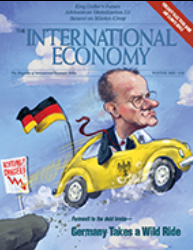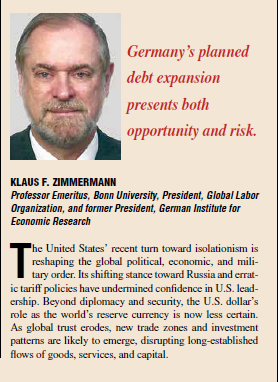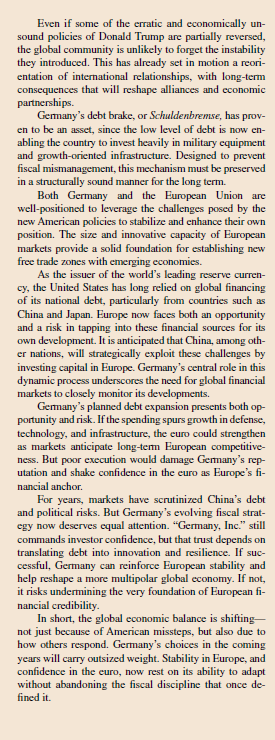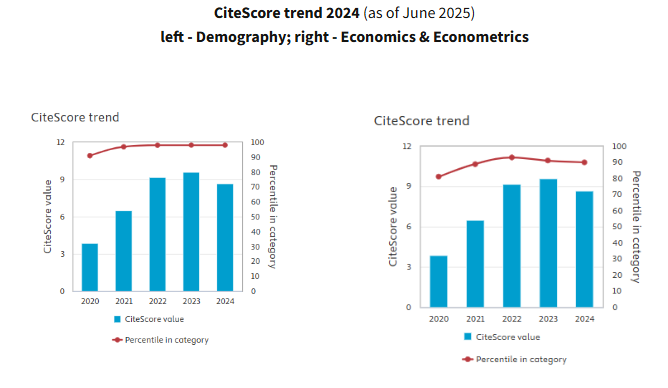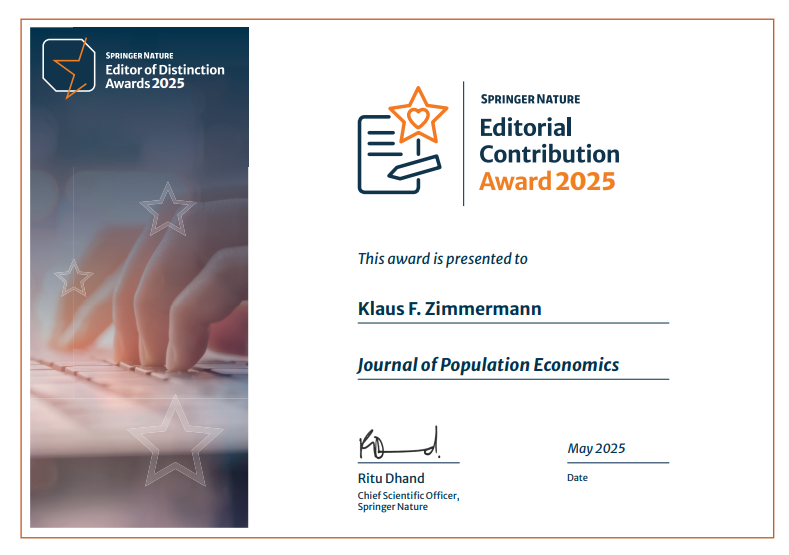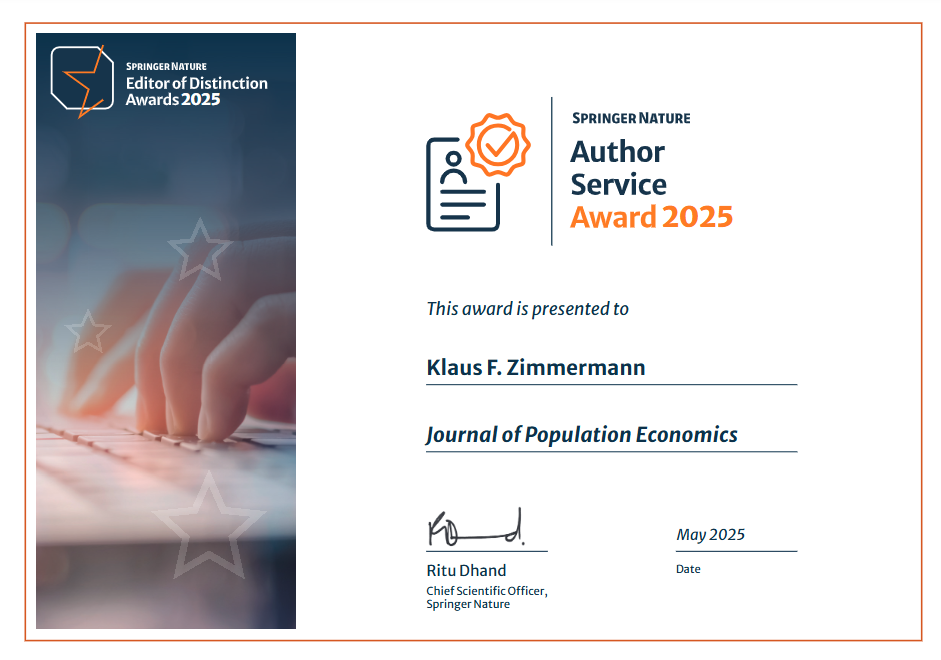The INTERNATIONAL ECONOMY magazine (The magazine of international economic policy) has just published a debate on Is Germany Without Its Debt Brake on the Right Track? What will be the end result of a huge European debt expansion led by a Germany? More than two dozen distinguished thinkers offer their views. See LINK to the magazine and inspect the PDF of the complete set of contributions.
Below is the contribution by Klaus F. Zimmermann, Germany’s planned debt expansion presents both opportunity and risk, in: The International Economy, Is Germany Without Its Debt Brake on the Right Track?, Winter 2025, pp. 21-22.
Germany’s planned debt expansion presents both opportunity and risk.
KLAUS F. ZIMMERMANN
Professor Emeritus, Bonn University, President, Global Labor Organization, and former President, German Institute for Economic Research
The United States’ recent turn toward isolationism is reshaping the global political, economic, and military order. Its shifting stance toward Russia and erratic tariff policies have undermined confidence in U.S. leadership. Beyond diplomacy and security, the U.S. dollar’s role as the world’s reserve currency is now less certain. As global trust erodes, new trade zones and investment patterns are likely to emerge, disrupting long-established flows of goods, services, and capital.
Even if some of the erratic and economically unsound policies of Donald Trump are partially reversed, the global community is unlikely to forget the instability they introduced. This has already set in motion a reorientation of international relationships, with long-term consequences that will reshape alliances and economic partnerships.
Germany’s debt brake, or Schuldenbremse, has proven to be an asset, since the low level of debt is now enabling the country to invest heavily in military equipment and growth-oriented infrastructure. Designed to prevent fiscal mismanagement, this mechanism must be preserved in a structurally sound manner for the long term.
Both Germany and the European Union are well-positioned to leverage the challenges posed by the new American policies to stabilize and enhance their own position. The size and innovative capacity of European markets provide a solid foundation for establishing new free trade zones with emerging economies.
As the issuer of the world’s leading reserve currency, the United States has long relied on global financing of its national debt, particularly from countries such as China and Japan. Europe now faces both an opportunity and a risk in tapping into these financial sources for its own development. It is anticipated that China, among other nations, will strategically exploit these challenges by investing capital in Europe. Germany’s central role in this dynamic process underscores the need for global financial markets to closely monitor its developments.
Germany’s planned debt expansion presents both opportunity and risk. If the spending spurs growth in defense, technology, and infrastructure, the euro could strengthen as markets anticipate long-term European competitiveness. But poor execution would damage Germany’s reputation and shake confidence in the euro as Europe’s financial anchor.
For years, markets have scrutinized China’s debt and political risks. But Germany’s evolving fiscal strategy now deserves equal attention. “Germany, Inc.” still commands investor confidence, but that trust depends on translating debt into innovation and resilience. If successful, Germany can reinforce European stability and help reshape a more multipolar global economy. If not, it risks undermining the very foundation of European financial credibility.
In short, the global economic balance is shifting— not just because of American missteps, but also due to how others respond. Germany’s choices in the coming years will carry outsized weight. Stability in Europe, and confidence in the euro, now rest on its ability to adapt without abandoning the fiscal discipline that once defined it.

